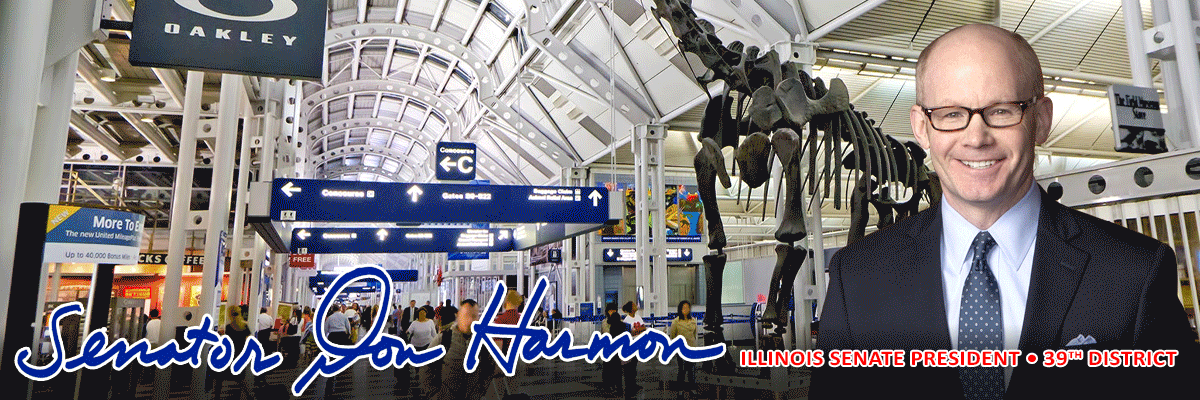SPRINGFIELD – In 1998, Senator Don Harmon’s hometown of Oak Park was first in the nation to establish a domestic partner registry by ballot referendum. Today, Senator Harmon joined the local gay and lesbian community in celebrating the Illinois Senate’s historic passage of legislation legalizing same-sex marriage in the state.
Harmon, the lead co-sponsor of 2009 legislation authorizing civil unions in Illinois, said that while the unions have been a step in the right direction, they don’t provide the full legal protection, social recognition or religious blessings of marriage.
“Couples in loving, committed relationships should be able to declare, with pride and dignity, that they are married. They should be able to enjoy both the celebration and the commitment that accompany marriage. If we’re serious about extending equal rights to same-sex couples, we must approve gay marriage in Illinois.
“I was proud to preside over the Illinois Senate during this historic vote, and I urge the House to follow suit and send this bill to the governor’s desk.”
Senate Bill 10, approved by the Senate on a 34-21-2 vote, now moves to the Illinois House for consideration. Governor Quinn has said he will sign the measure if it reaches his desk.
Leaders of the local gay and lesbian community spoke eloquently about the legislation’s significance to them.
“As important as the right to marry is to us as individuals, equally important is the public recognition that gay families are just like other families,” said Colette Lueck, an Oak Park Village trustee and board member of the Oak Park Area Lesbian and Gay Alliance. She and her partner have been in a committed relationship for 30 years, the past two in a civil union. They have a 22-year-old son.
“While I’m pleased by today’s vote and thankful for Senator Harmon’s unwavering and clear leadership and commitment to get this done, my partner and I will never know when we might have chosen to get married given the chance,” said Lueck. “When this measure becomes law, as it must, and we have the opportunity to marry, we will reflect on the 30 years we have been together and celebrate a shared history, parenthood, a life lived.”
Said Oak Parker Jim Kelly, “If any state in the Union should further the ideas of equality for all and eradication of barriers to that end, it’s the land of Lincoln. Today’s Senate vote is an important step in the long American journey towards absolute parity in civil rights for all of us.”
Kelly and his life partner Bruce Broerman helped found the Oak Park Area Lesbian and Gay Association in 1989.
“We’ve been together for 25 years, in a quarter-century-long caring, productive and civically engaged relationship – one that by any standards of legitimate family values merits recognition as a marriage,” said Kelly.
The Senate sponsor of the Religious Freedom and Marriage Fairness Act recognized Harmon for his long commitment to equal rights for same-sex couples and his stewardship of the Senate Executive Committee, which recommended passage of the bill by the full Senate.
“Senator Harmon is a strong supporter of marriage equality,” said Senator Heather Steans, the measure’s chief sponsor. “His leadership was a huge help in getting the bill out of Executive Committee and to the Senate floor.”
Harmon also noted that if the federal government ever legalizes same-sex marriage, couples in civil unions might not automatically be eligible for federal benefits.
While same-sex couples in Illinois have legal rights in the state, they might not be able to file joint tax returns or qualify for other benefits without a state law approving gay marriage.
The law includes protections allowing religious organizations that object to same-sex marriage to refuse to conduct or recognize (in a religious sense) same-sex weddings.
“An important part of this bill is the protection for religious groups that have moral objections to same-sex relationships,” Harmon added. “We understand that there are good people who don’t believe in gay marriage for religious reasons, and we aren’t going to force them to violate their religious beliefs.”




